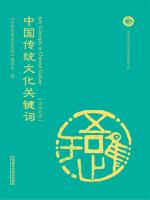jingjie
沈小糖
The Interpretation of "Jingjie" (Visionary World) in "Key
Words of Chinese Traditional Culture" In Chinese traditional
culture, the term "Jingjie" (Visionary World) holds profound
implications, encompassing both aesthetic and philosophical dimensions.
It refers to a state of mind or a spiritual realm that transcends the
mundane, attained through deep reflection, meditation, and artistic
appreciation. In the context of aesthetics, "Jingjie" often
pertains to the appreciation of art, poetry, and music. It is the state
where the observer or listener is able to transcend the physical aspects
of the artwork and connect with its deeper, spiritual essence. This
state is often marked by a sense of awe, wonder, and deep emotional
resonance. Philosophically, "Jingjie" denotes a level of
enlightenment or understanding that goes beyond the superficialities of
life. It is achieved through self-reflection, contemplation, and the
pursuit of wisdom. In this state, one gains insights into the true
nature of reality and the universe, attaining a higher level of
consciousness and awareness. The concept of "Jingjie" is
closely tied to the Eastern philosophical traditions, particularly those
of Confucianism, Taoism, and Buddhism. In Confucianism, it is seen as a
state of moral and intellectual perfection, where one's actions and
thoughts are aligned with the principles of righteousness and harmony.
In Taoism, "Jingjie" is associated with the attainment of
inner peace and tranquility, living in harmony with nature and the
universe. In Buddhism, it is linked to the state of enlightenment, where
one transcends the cycle of birth and death to achieve nirvana. In
summary, "Jingjie" represents a lofty ideal in Chinese
traditional culture, encompassing aesthetic appreciation, philosophical
enlightenment, and moral perfection. It is a state that is aspired to by
many, achieved through lifelong pursuit and dedication to personal and
spiritual growth.




 京公网安备 11010802032529号
京公网安备 11010802032529号